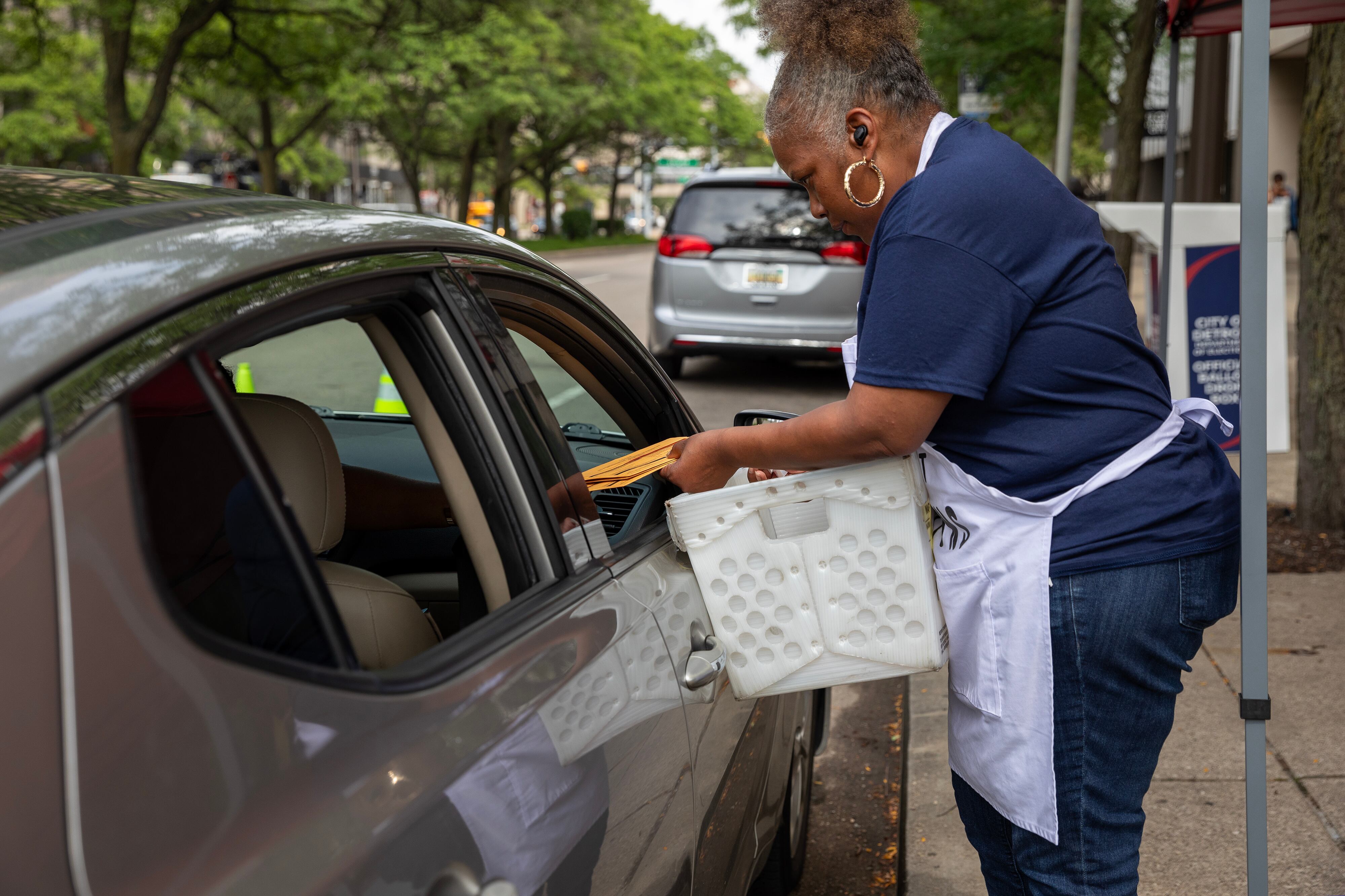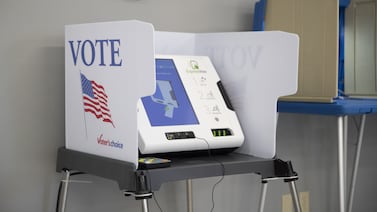Votebeat is a nonprofit news organization reporting on voting access and election administration across the U.S. Sign up for Votebeat Michigan’s free newsletter here.
It’s primary election day in Michigan, and there is no shortage of interesting things happening around the state.
Today’s results will shape much of the ballots we’ll see in November’s general election. Who will be competing for a seat in our Legislature? Who will be that much closer to being the new junior senator from Michigan? What millages will our communities support, renew, or reject?
But today is also yet another test of Michigan’s new and expanded voting rules: Will more communities take advantage of the chance to pre-process their absentee ballots? Will more voters choose to vote absentee? What will we find out about the popularity of early voting? And how will the state’s election officials address whatever challenges come their way today?
Here’s what I’m watching around Michigan:
The impact of ‘crossover’ voting
As I reported last week, crossover voting — or voting for more than one party on a single primary ballot — is a real problem in Michigan. Thousands of votes across the state are likely to go uncounted because voters, intentionally or otherwise, crossed party lines while voting.
I’m curious: How big a problem will that be as more Michiganders opt for absentee ballots? Will clerks be paying attention to it? If we can get a good estimate of the size of the problem, will the Legislature consider changes?
How are voters choosing to vote?
I’m interested to see how many voters across the state choose to take advantage of some of Michigan’s relatively new voting options. Secretary of State Jocelyn Benson said in a release Monday that more than 73,000 people cast their ballots early in person. This election is only the second in the state where in-person early voting has been available to all voters, so it’s hard to predict how that will compare with Election Day voting, but I’m looking forward to seeing what the trend is.
We also know that nearly a million people returned absentee ballots as of Monday. Numbers provided by the Secretary of State’s Office show that 1,638,830 people requested an absentee ballot and 970,041 voters had returned them as of Monday, a return rate of about 59%. (If you’re curious about who had the best return rates, numbers from the state also show that in one Michigan community — Newton Township, in Mackinac County — voters had returned 100% of the 48 absentee ballots issued by Monday.)
I’ll be watching to see how many clerks choose to pre-process those ballots, as they are now allowed to. Pre-processing means clerks can start opening absentee ballot envelopes and begin the earliest stages of processing them. Critically, they cannot tabulate those votes until polls close. Gov. Gretchen Whitmer signed the law allowing pre-processing in 2022, and it was later expanded to include additional days.
I had the chance to see Detroit’s ballot pre-processing in action last week, and it was interesting to see how careful the process can be to guard against wrongdoing.
For officials who do choose to pre-process, is it saving them time? Is it getting results out faster? Is it worth any potential expense? If you’ve got thoughts on this, I’d love to hear from you.
Who’s running for clerk? Anyone?
There are a few key areas of the state that I’ll be looking at this week: areas where candidates for clerk positions have pushed election conspiracies, and areas where there aren’t any clerk candidates at all.
There’s been a lot of great reporting on both issues in recent weeks. Michigan Advance’s Jon King wrote about the lack of clerk candidates, where officials say some who might have considered the job don’t want it because of attacks on election officials in recent years. This hasn’t led to any jobs going unfilled, King reports, but it can create a real headache as the specifics of who will actually run the elections get hashed out.
I’m also keeping tabs on races where peddlers of election conspiracy theories are on the ballot. That includes places like Antrim County, as Lauren Gibbons reported for Bridge Michigan. There, a clerk who was planning to retire is instead considering a write-in campaign to try to keep a conspiracy theorist out of office.
Dar Leaf, the Barry County sheriff, is in a primary race too. He had deputies question election clerks in an attempt to prove former President Donald Trump’s claims that the 2020 election was stolen from him. (Barry County, north of Kalamazoo, went for Trump.)
Elsewhere, certain fake electors who participated in a scheme by Trump allies are also running for office, as is one of the men found not guilty of supporting an attempt to kidnap Whitmer. I’ll be curious to see how voters respond.
Other election notes
Voter turnout, as always, could make a huge difference, particularly in tight races. The Associated Press reports there were about 8.3 million registered voters in Michigan as of July. In 2022, the AP reported, turnout was about 12% for the Democratic primary and 13% for the Republican primary. More than half of voters in 2022 cast their ballot before primary day, compared with only about 35% in this year’s presidential primary in February.
If you’re going out to vote today, polls are open from 7 a.m. until 8 p.m. We aren’t going to have results right at 8 p.m. — we never do in Michigan! — but it’s possible we’ll get some absentee ballot totals earlier in the night thanks to pre-processing.
U.S. Justice Department officials will be in Allegan and Van Buren counties in western Michigan today monitoring elections as part of their effort to enforce federal voting rights. Monitors will specifically be in Fennville, Covert Township, and Clyde Township, communities where voters all have a right to Spanish language ballots under the 2006 reauthorizaiton of the Voting Rights Act.
As a reminder: There are barely 90 days left until the general election. I’d love to hear more about what stories you’d like to see covered in the meantime. You can always reach me at hharding@votebeat.org.
Hayley Harding is a reporter for Votebeat based in Michigan. Contact Hayley at hharding@votebeat.org.






